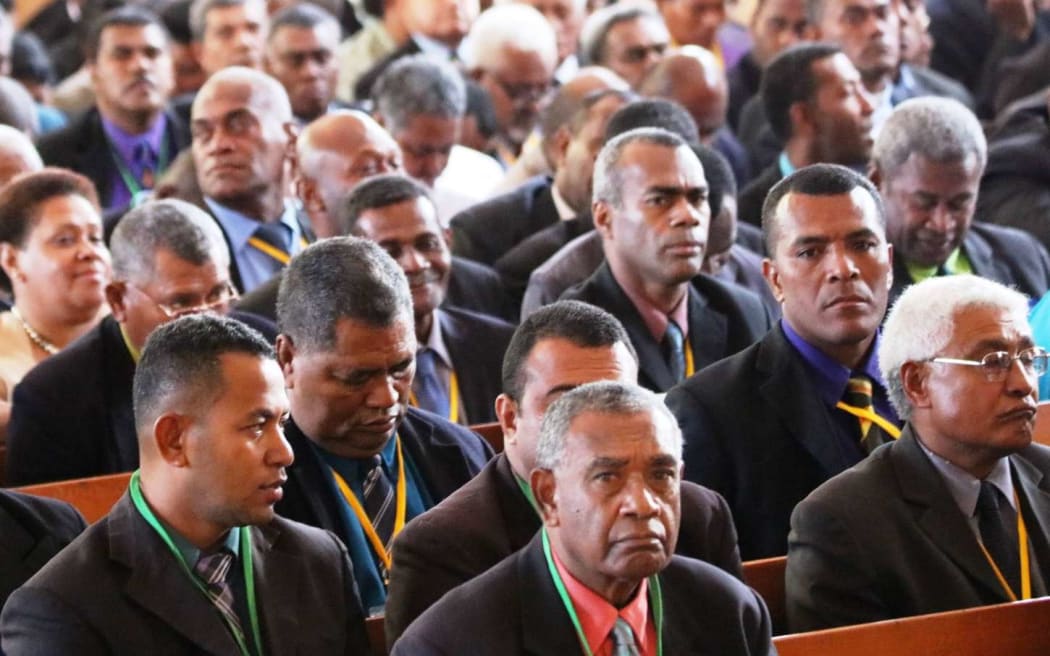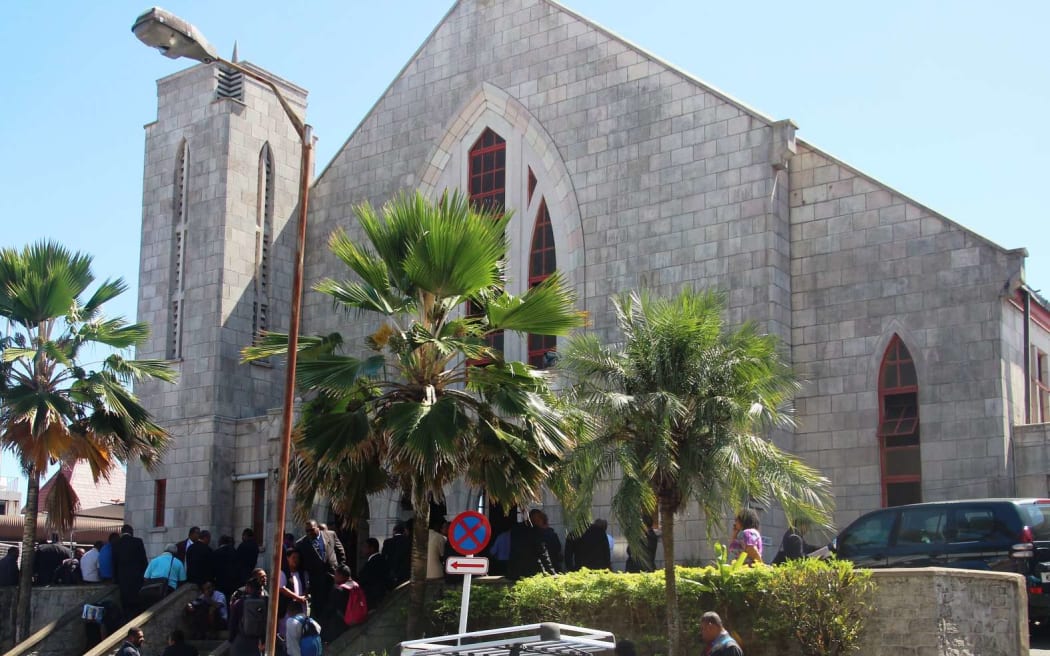Fiji's Methodist Church has decided to offer lessons in Hindi and Indian culture to ministers training at its theological college.

A Methodist congregation in Fiji. Photo: Facebook / Methodist Church in Fiji and Rotuma.
The country's largest church, made up of mostly indigenous Fijians, passed the resolution during its annual conference in Suva this week.
Church leaders have told the gathering the church needs to be inclusive and accommodating in order to recapture the explosive growth of earlier times.
A spokesman, Reverend Wilfred Regunamada, said part of this was engaging younger people and reaching out to the church's Indo-Fijian membership.
"We are trying to address this through the learning of Indian language in our theological college, the incorporating of cultural and traditional knowledge to our ministers, to our members that really help us interact with our brothers and sisters who are in the minority groups in the Methodist Church in Fiji."
"Some of (the) minority groups in the church are not really recognised as they should be," he said.
"They are very much important. They are part and parcel and a very important part of the growth of the church."
The church had about 300,000 members in Fiji, 96 percent of them indigenous Fijians, Rev Regunamada said.

A Methodist church in Fiji. Photo: Facebook / Methodist Church in Fiji and Rotuma.
Secularism and post modernism were having a powerful impact on the church's growth, according to the church's president Reverend Dr Epineri Vakadewavosa.
In his opening address he said Pacific methodist leaders had been deliberating seriously on how best to advise local churches to withstand the challenge of declining membership.
"There is a very real need to revisit the first church in Jerusalem and recapture what we have lost," he said.
"The church must be built on a very solid ground so it can stand unshakeable on the shifting sands of economic change, social change, educational change and political change."

